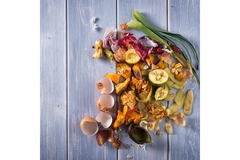
- Industry news
Industry news
- Category news
Category news
- Reports
- Key trends
- Multimedia
- Journal
- Events
- Suppliers
- Home
- Industry news
Industry news
- Category news
Category news
- Reports
- Key trends
- Multimedia
- Events
- Suppliers

23 Mar 2023 --- To tackle dangerous compounds left behind when foods like fish, meat and cheese decompose, a team of scientists from the South Korean Pusan National University has developed a color-changing portable sensor that quickly detects biogenic amines (BAs).
The human body uses BAs in small amounts in processes like hormone synthesis. However, ingesting large quantities of BAs from spoiled foods can cause serious health problems.
“The rapid and easy monitoring of harmful BAs released from spoiled foods could alert us, prevent consumption of spoiled meat, maintain food quality and establish further effective food storage and distribution conditions in the logistic chain,” explains Sungbaek Seo, associate professor of biomaterials science at Pusan National University.
Color-changing food safety tech
The team combined the distinct color-changing property of polydiacetylene-based hydrogel beads, which upon binding with BAs with an alginate solution, allowed for the fabrication of this sensor.
“The portable beads could be utilized on sites for monitoring whether the food quality is okay during storage and logistic chain. Further, the beads could be applied in evaluating whether ideal food storage and distribution conditions are well-preserved.”
 Being able to detect when food is going to spoil helps food distributors to prioritize shipments and prevent perfectly edible foods from going to waste.The researchers demonstrated that the developed sensor beads could detect BAs – like cadaverine and propylamine – in solution and vapor forms via distinct changes in color, from blue to red.
Being able to detect when food is going to spoil helps food distributors to prioritize shipments and prevent perfectly edible foods from going to waste.The researchers demonstrated that the developed sensor beads could detect BAs – like cadaverine and propylamine – in solution and vapor forms via distinct changes in color, from blue to red.
According to the scientists, the sensors can efficiently track the gradual spoilage of food over time through different shades of color in the sensor.
The sensor is made of portable, lightweight beads and does not require complicated analytical equipment or skilled personnel.
Combating food waste
Being able to detect when food is going to spoil helps food distributors to prioritize shipments and prevent perfectly edible foods from going to waste.
The Intergovernmental Panel on Climate Change flagged on Monday that cutting food waste is critical to fight the climate crisis and keep global warming around the 1.5-Celsius threshold.
Earlier this month, the UK Waste and Resources Action Programme aims to increase the amount of uncut fresh fruit and vegetables sold loose to 30% by the end of 2025 and aims to target 50% by the end of 2030.
Meanwhile, The United States Department of Agriculture will make US$9.5 million available for Compost and Food Waste Reduction pilot projects this year. The initiative is designed to support projects that develop and test strategies for planning and implementing municipal compost and food waste reduction plans.
Edited By Marc Cervera











